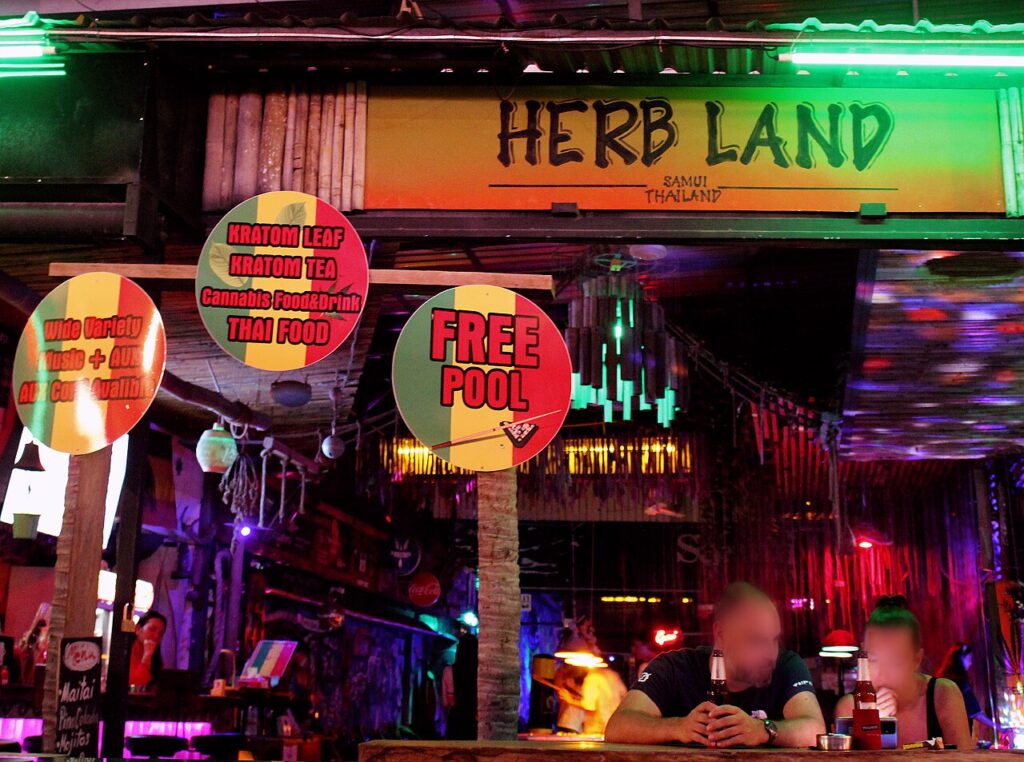Thailand’s Ministry of Health is implementing a ban on recreational cannabis use by the end of the year, aiming to curb its negative effects on Thai youth and society. The new regulations include the closure of cannabis stores, reintroduction of penalties for home cultivation, and stricter punishments for illegal distribution, emphasizing public health and youth safety as primary concerns.
End of Cannabis in Thailand: Health Ministry Implements Ban


Thailand aims to prohibit the recreational use of cannabis by the end of the year. The Ministry of Health has announced the introduction of restrictions.
For more news like this, along with all the latest in legalization, research, and lifestyle, download our free cannabis news app.
Implementation of Restrictions
Thailand plans to impose restrictions on the recreational use of cannabis by the end of the current year, as announced by the health minister of the country. Authorities emphasize that improper use of this substance has a negative impact on Thai youth.
According to the new regulations, Thailand prohibits the use of cannabis for non-medical purposes while leaving room for its medical application.
“The government will draft a bill next month, which will then be submitted to the parliament for approval before the year-end,” said Cholnan Srikaew, the health minister of Thailand.
The Decline of Cannabis Stores in Thailand
The minister explains that the lack of appropriate legal regulations regarding the handling of cannabis results in its abuse. “Improper use of hemp harms Thai youth and may lead to the use of other narcotics,” he adds.
With the implementation of the new regulations, stores selling cannabis will be closed, and the cultivation of cannabis in home settings will once again become illegal. The Ministry of Health estimates that there are currently around 20,000 such retail points.
“Under the new law, cannabis will be classified as a controlled plant, meaning its cultivation will require special permission,” the minister states. “We encourage the cultivation of cannabis for medical and health sector purposes,” he adds.
Strengthening Sanctions for Illegal Cultivation and Distribution of Cannabis
The Thai regulations provide for a fine of up to 60,000 baht (approximately $1,700) for recreational cannabis use. Selling cannabis for recreational purposes, as well as participating in its promotion or marketing, carries a penalty of up to one year of imprisonment or a fine of up to 100,000 baht (about $2,800), and in some cases, both penalties may apply.
The new law also introduces harsher penalties for the cultivation of cannabis without proper permits, with the possibility of imprisonment ranging from one to three years and fines ranging from 20,000 baht ($560) to 300,000 baht ($8,000).
Cholnan emphasized that the Thai government appreciates the economic benefits of the hemp sector and will provide a transitional period for businesses to adapt to the new regulations. This will allow shops to continue operating until their licenses expire, facilitating transformation into legally operating hemp clinics. He also emphasized that the new regulations will not negatively impact the tourism industry.
Following the liberalization of marijuana regulations in 2018, allowing for its medical and recreational use from 2022, the market for stores offering cannabis rapidly expanded in Thailand.
Ban Marks Significant Backpedalling By Thailand
This legislative change marks a significant shift in drug policy for Thailand, which until recently was a leader in liberalizing cannabis regulations on the Asian continent. These actions were interpreted as a step towards normalization and social acceptance, but the latest decisions of the authorities show that Thailand is leaning towards a more restrictive policy, especially in light of concerns about the impact of marijuana on younger generations.
The focus on protecting public health and youth safety in Thailand seems to be the main motive behind these changes. Imposing stricter penalties for those violating the new regulations aims to limit access to marijuana among minors and prevent potential increases in addiction and drug-related crime.
—
(Featured image by Per Meistrup (CC BY-SA 4.0) via Wikimedia Commons)
DISCLAIMER: This article was written by a third-party contributor and does not reflect the opinion of Hemp.im, its management, staff, or its associates. Please review our disclaimer for more information.
This article may include forward-looking statements. These forward-looking statements generally are identified by the words “believe,” “project,” “estimate,” “become,” “plan,” “will,” and similar expressions. These forward-looking statements involve known and unknown risks as well as uncertainties, including those discussed in the following cautionary statements and elsewhere in this article and on this site. Although the company may believe that its expectations are based on reasonable assumptions, the actual results that the company may achieve may differ materially from any forward-looking statements, which reflect the opinions of the management of the company only as of the date hereof. Additionally, please make sure to read these important disclosures.
First published in Fakty Konopne, a third-party contributor translated and adapted the article from the original. In case of discrepancy, the original will prevail.
Although we made reasonable efforts to provide accurate translations, some parts may be incorrect. Hemp.im assumes no responsibility for errors, omissions or ambiguities in the translations provided on this website. Any person or entity relying on translated content does so at their own risk. Hemp.im is not responsible for losses caused by such reliance on the accuracy or reliability of translated information. If you wish to report an error or inaccuracy in the translation, we encourage you to contact us.



Comments are closed for this post.